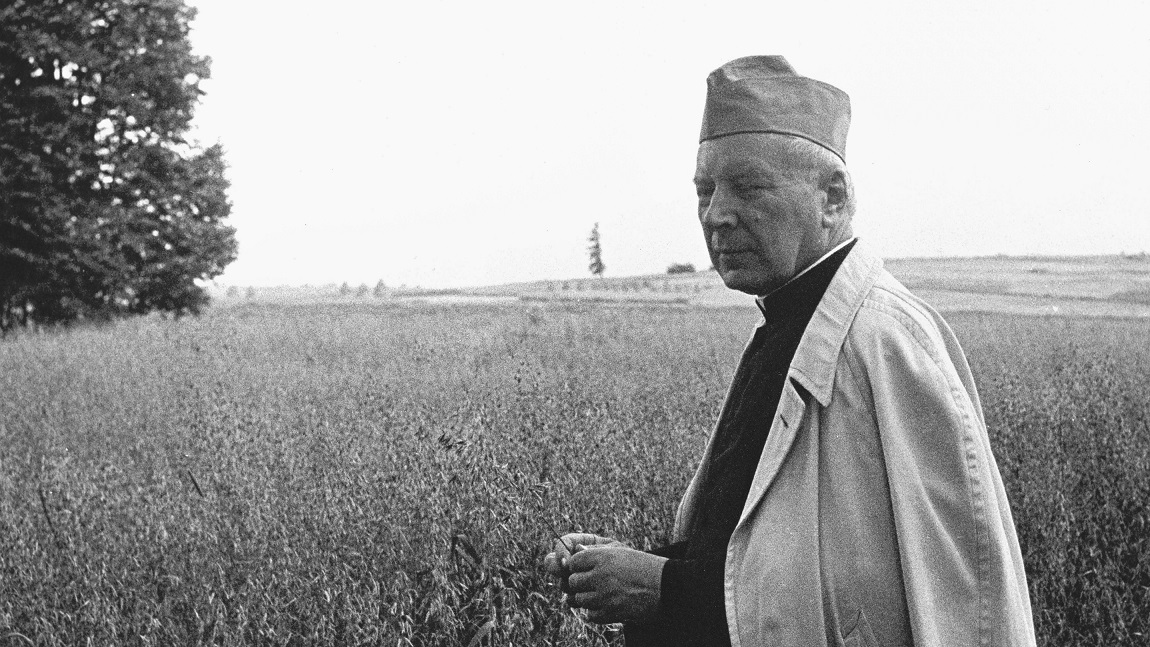Father and Shepherd #7 | Shepherd of the Church in Poland


fot. Instytut Prymasowski Stefana Kardynała Wyszyńskiego
Cardinal Stefan Wyszyński the Primate of Poland has remained in the memory of Poles as a statesman, defender of faith and freedom of the homeland, advocate of unconditional human dignity.
How did it happen that the youngest bishop, who had been in his ministry for only two years, became the Archbishop of Gniezno and Warsaw, the Primate of Poland. Years later, he learned that Cardinal August Hlond, before his death, dictated to his secretary, Bishop Antoni Baraniak, two letters to the Holy Father, asking that his successor would be Bishop Stefan Wyszyński.
Until the ingress in Gniezno (2nd February 1949), Bishop Wyszyński remained in Lublin. On the threshold of 1949, he wrote: “I’m starting a new year of work. I did not think that I should say goodbye to Lublin this year (…). But I am only God’s errand boy. ”
Archbishop Stefan Wyszyński began his service in the Primate’s See in a very difficult situation of enslavement of the Fatherland by the communist regime. Already in his letter on the day of ingress, he wrote with what message he comes with:
“Do I still have a duty to introduce myself to you,” asked the Primate in the aforementioned letter. – I am neither a politician nor a diplomat, I am not an activist or a reformer. But on the other hand I am your spiritual father, shepherd and bishop of your souls, I am an apostle of Jesus Christ. My mission is priestly, pastoral, apostolic, arising from God’s eternal thoughts, from the saving will of the Father, who joyfully shares his happiness with man ”.
Taking up the service of the Primate of Poland, Archbishop Stefan Wyszyński adopted as his program the testamentary words of the dying Cardinal August Hlond. “Undoubtedly, light was needed for such work. I am not saying that this is some kind of extraordinary gift of mine. This is a gift of grace announced through the mouth of my Predecessor, Cardinal August Hlond, who, dying in Warsaw, said: “Work and fight under the protection of the Mother of God. Victory, when it comes, will be the victory of the Blessed Virgin Mary. ” These were almost the last words of Cardinal August Hlond.
I have never lost them from my consciousness. God allowed me to light in my soul the image of the Woman Clothed with the sun, and the moon under her feet. She also fought, because she was fighting to defend her child, who was just about to be born, and whom Satan was already waiting for, so that when he was born he might devour him. God stood up for the Woman, taking the new-born child to Himself, and He gave the Mother shelter on earth. And this is what I thought: God will defend His Son and will not let Him destroy Him, although the dragon – as Saint John saw in the Apocalypse – sweeps a third of the stars from the horizon of the sky to throw them to the ground. Christ will be saved because He does not die anymore. The cross was the site of His victory through death, but He has conquered! So “fight or victory will come.”
In times of the struggle of God’s powers and the power of darkness, Primate Wyszyński prioritized a concern for people, not for political success. He looked for solutions according to faith and prudence, he did everything so that no man would perish because of his fault, lest the nation succumb to hatred.
Analysing the situation of the Church at this difficult moment in history, when there was no binding legal agreement in the country – the concordat was broken by the communist authorities on 12th September 1945 – Primate Wyszyński on the 14th April 1950 concluded an Agreement with the government. It was about any legal basis in the Church-State relationship.
In November 1952, Primate Wyszyński was appointed a Cardinal. It was an expression of the special trust of the Holy Father Pius XII in the Primate of Poland. As the state authorities did not issue him with a passport, in January 1953 he could not go to the consistory. At that time, citizens did not have passports at home. Before each departure, you had to apply for a document, which, after returning, had to be returned to the office. The authorities could refuse to grant a passport without giving any reason.
The government was constantly breaking the Agreement. On 9th February 1953, the authorities issued a decree filling church positions. Bishops were to be appointed by the prime minister and parish priests by the Voivode. In view of such lawlessness and attempts to interfere with the ecclesiastical jurisdiction, the Polish Episcopate headed by Primate Wyszyński issued a memorial to the government on 8th May 1953: “Non possumus”. Primate Wyszyński said to the faithful during the Corpus Christi procession in Warsaw: “You must not reach the altar, you must not stand between Christ and the priest, you must not violate the conscience of the priest, you must not stand between the bishop and the priest. We teach that what is Caesar must be returned to Caesar and what is God’s to God. However when Caesar sits on the altar, we say briefly: you must not ”. This protest eventually contributed to the arrest of the Primate.
Father and Shepherd #1 | Childhood >>>
Father and Shepherd #2 | Seminary and priestly ordination >>>
Father and Shepherd #3 | The beginning of priestly ministry >>>
Father and Shepherd #4 | Among the workers in Włocławek >>>
Father and Shepherd #5 | Wartime exile >>>
Father and Shepherd #6 | At the episcopal see in Lublin >>>





Dodaj komentarz